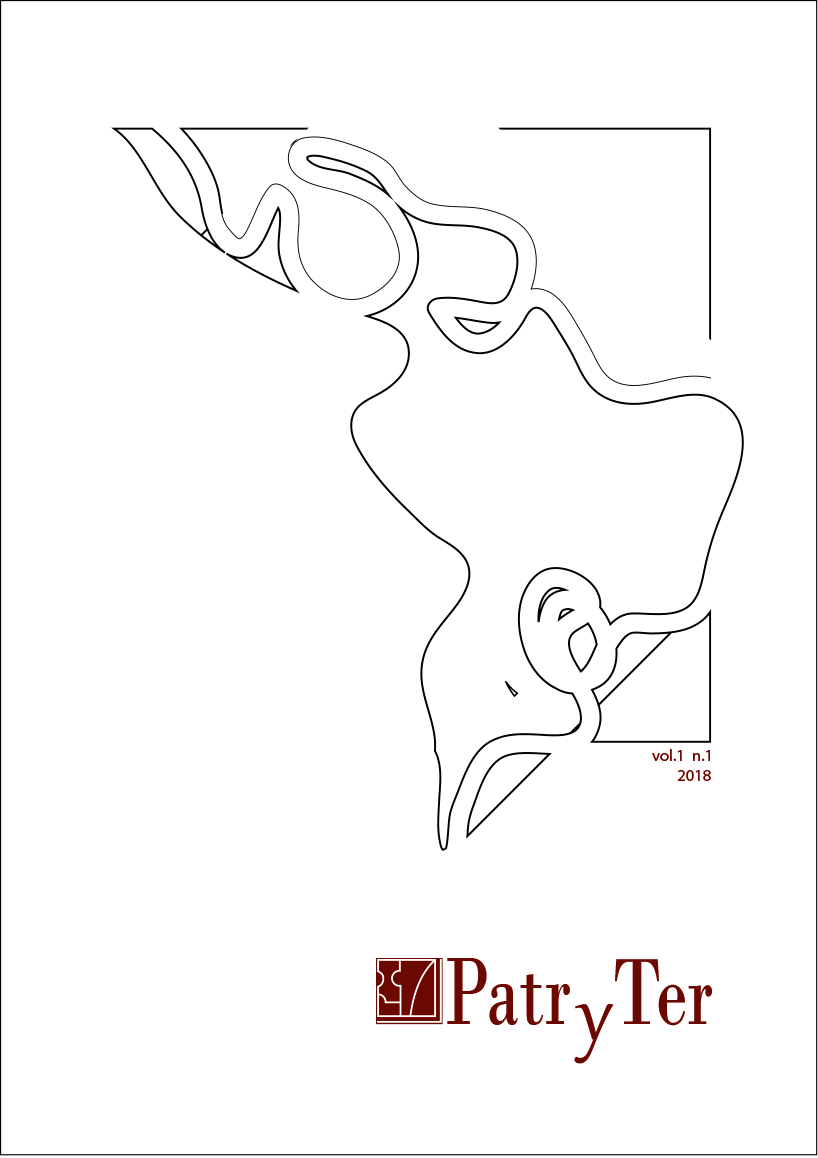Heterotopic dimension of international migration: The spatial value of geographical heritage
DOI:
https://doi.org/10.26512/patryter.v1i1.7112Keywords:
International migration. heterotopia. social space. geographical heritage. cultural heritageAbstract
The present work takes the concept of heterotopia realized by the French Philosopher Michael Foucault, to turn its reflection towards one of the most interesting geographical phenomena with respect to the construction of sense to inhabit, to appropriate and to mean territories and places: the international migration. In this framework of understanding, the construction towards those "other spaces" located in what we call real space, alluding to the French sociologist and philosopher Henri Lefebvre, his work can reflect on importance of experience and visibility of differences in understanding the geographical and cultural heritage of meetings this as a way to observe the richness that has the plurality and as a form of resistance to the hegemonic stipulated before understanding diversity.
Downloads
References
Alonso, M. G. (2014). Los territorios de los otros: memoria y heterotopía. Cuicuilco, 21(61), pp. 333-352. Recuperado de http://www.scielo.org.mx/scielo.php?script=sci_arttext&pid=S0185-16592014000300015
Batalla, G. B. (1991). Pensar nuestra cultura. Ensayos. México: Editorial Patria.
Claval, P. (1999). Los fundamentos actuales de la geografía cultural. Documents d’Análisi Geográfica. 34, pp. 25 - 40. Recuperado de: http://age.ieg.csic.es/hispengeo/documentos/ clavalcultural.pdf
Di Méo, G. (1996). Les territoires du quotidien. Paris: L’Harmattan.
Foucault, M. (1967). De los espacios otros. Conferencia dictada en el Cercle des études architecturals. Recuperado de: http://yoochel.org/wp-content/uploads/2011/03/foucalt_de-los-espacios-otros.pdf
Gendreau M., & Giménez, G. (2002). La migración internacional desde una perspectiva sociocultural: estudio en comunidades tradicionales del centro de México. Migraciones Internacionales, 1 (2), pp. 147-180. Recuperado de http://www.scielo.org.mx/pdf/migra/ v1n2/v1n2a6.pdf
Guérin-Pace, F. (2003). Vers une typologie des territoires urbains de proximité. L’Esapce Géographique, 4 (32), pp. 333-344. doi: 10.3917/eg.324.0333
Guérin-Pace, F. (2006). Sentiment d’appartenance et territoires identitaires. L’Espace Géographique. 4 (35), pp. 298-308. doi: 10.3917/eg.354.0298
Guérin-Pace, F. & Guermond Y. (2006). Identité rapport au territoire. L’Espace Géographique, 4 (35). 289-290. doi: 10.3917/eg.354.0289
Harvey. D. (2017). El cosmopolitismo y las geografías de la libertad. España: Ediciones Akal.
Hiernaux, D. (2008). De los imaginarios a las prácticas urbanas: construyendo la ciudad de mañana. Iztapalapa - Revista de Ciencias Sociales y Humanidades, (64-65), pp. 17-38. Recuperado de http://132.248.9.34/hevila/Iztapalapa/2008/vol29/no64-65/1.pdf
Kant, E. (1984). Crítica de la razón pura. Madrid: Alfaguara.
Lefebvre, H. (2013). La producción del espacio. España: Capitán Swiny.
Lefebvre, H. (1983). La presencia y la ausencia: contribución a la teoría de las representaciones. México: Fondo de Cultura Económica.
Lestegás, F. R. (2006). La estrategia socioespacial de las heterotopías: ¿el poder organiza espacios de exclusión o de fijación?. Xeográfica, Revista de Xeografía, Territorio e Medio Ambiente, 6, pp. 171-179.
Lévy J. & Lussault, M. (2007). Logique de l’Espace, esprit des lieux : Géographies à Cerisy. Paris : Belin.
Mazurek, H. (2009). Migraciones y dinámicas territoriales. In C. Salazar (Ed.), Migraciones contemporáneas: contribución al debate (pp. 11-33). Bolivia: Edit. CIDES-UMSA
Ortega, M. J. Q. (2007). Migración, arraigo y apropiación del espacio en la recomposición de identidades socioterritoriales. Cultura y representaciones sociales. Un espacio para el diálogo interdisciplinario. 2 (3), pp. 35-67. Recuperado de http://www.journals.unam.mx/index.php/crs/article/view/16252
Morales, J. E. P. (2014). El gobierno urbano: indagaciones alrededor de las heterotopías innovadoras. Caso Medellín. Cuaderno de vivienda y urbanismo. 7 (13), pp. 116-125. Recuperado de http://revistas.javeriana.edu.co/index.php/cvyu/article/view/8753/8072
Rose, G. (1999). Performing Spaces. In J. Allen, J., D. Massey & P. Sarre (Eds.). Human geography today (pp. 247-259). Cambridge, UK: Polity Press.
Said, W. E. (2008). Orientalismo. España: Random House Mondadori.
Soja, E., Benach, N. & Albet, A. (2010). Edward W. Soja. La perspectiva postmoderna de un geógrafo radical. Barcelona: Icaria.
Swain, T. N. (2001). ¿Qué es el lesbianismo?. São Paulo: Brasiliense.
Downloads
Published
How to Cite
Issue
Section
License
Copyright (c) 2018 PatryTer

This work is licensed under a Creative Commons Attribution-NonCommercial-NoDerivatives 4.0 International License.
Please be advised that Revista Patryter is licensed under a Creative Commons Attribution-NonCommercial-NoDerivatives 4.0 International License (CC BY-NC-ND 4.0) https://creativecommons.org/licenses/by-nc-nd/4.0/deed.en
Authors who publish in the PatryTer Magazine agree to the following terms:
- Authors retain the copyright and grant the journal the right of first publication, the work being simultaneously licensed under the Creative Commons Attribution-NonCommercial-NoDerivatives 4.0 International License (CC BY-NC-ND 4.0) which allows the sharing of the work with recognition of the authorship of the work and initial publication in this journal.
- The contribution is original and unpublished and is not being evaluated for publication by another journal. When submitting the article, authors should attach as a supplementary document a Letter addressed to the PatryTer's Editor, indicating the academic merits of the submitted work (relevance, originality and origin of the article, that is, from what type of research]. This letter must be signed by all authors.
- The authors authorize PatryTer Journal to publish the article in public and private databases, in Brazil and abroad.
- Authors declare that they are fully responsible for the entire contents of the contribution that they submit to the Editorial Board of PatryTer Magazine.
- Authors declare that there is no conflict of interest that could interfere in the impartiality of the scientific papers submitted to the PatryTer Magazine Editorial Board.
- Authors are authorized to take additional contracts separately, for non-exclusive distribution of the version of the work published in this journal (eg publish in institutional repository or as a book chapter), with acknowledgment of authorship and initial publication in this journal.
Authors are allowed and encouraged to publish and distribute their work online (eg in institutional repositories or on their personal page) at any point before or during the editorial process, as this can generate productive changes as well as increase the impact and the citation of the published work (See The Effect of Free Access).



